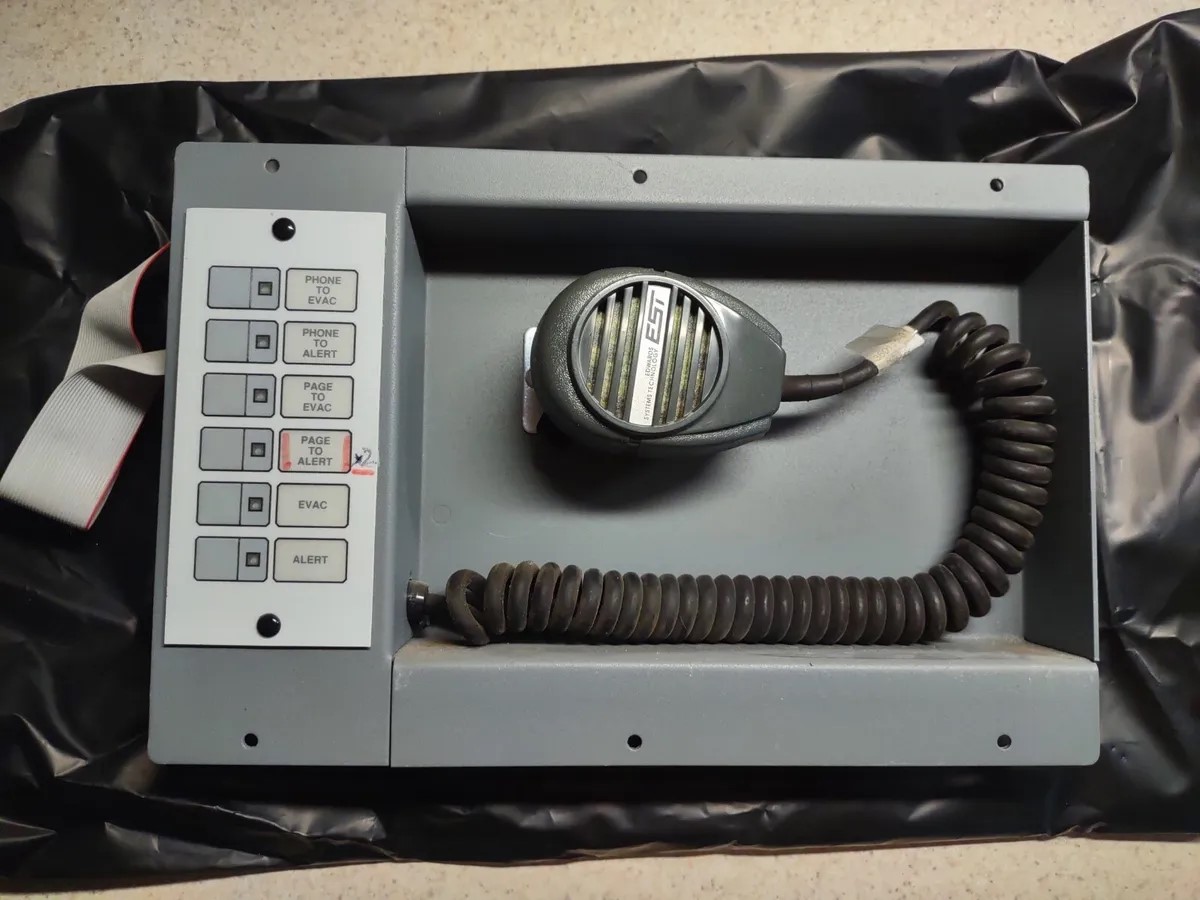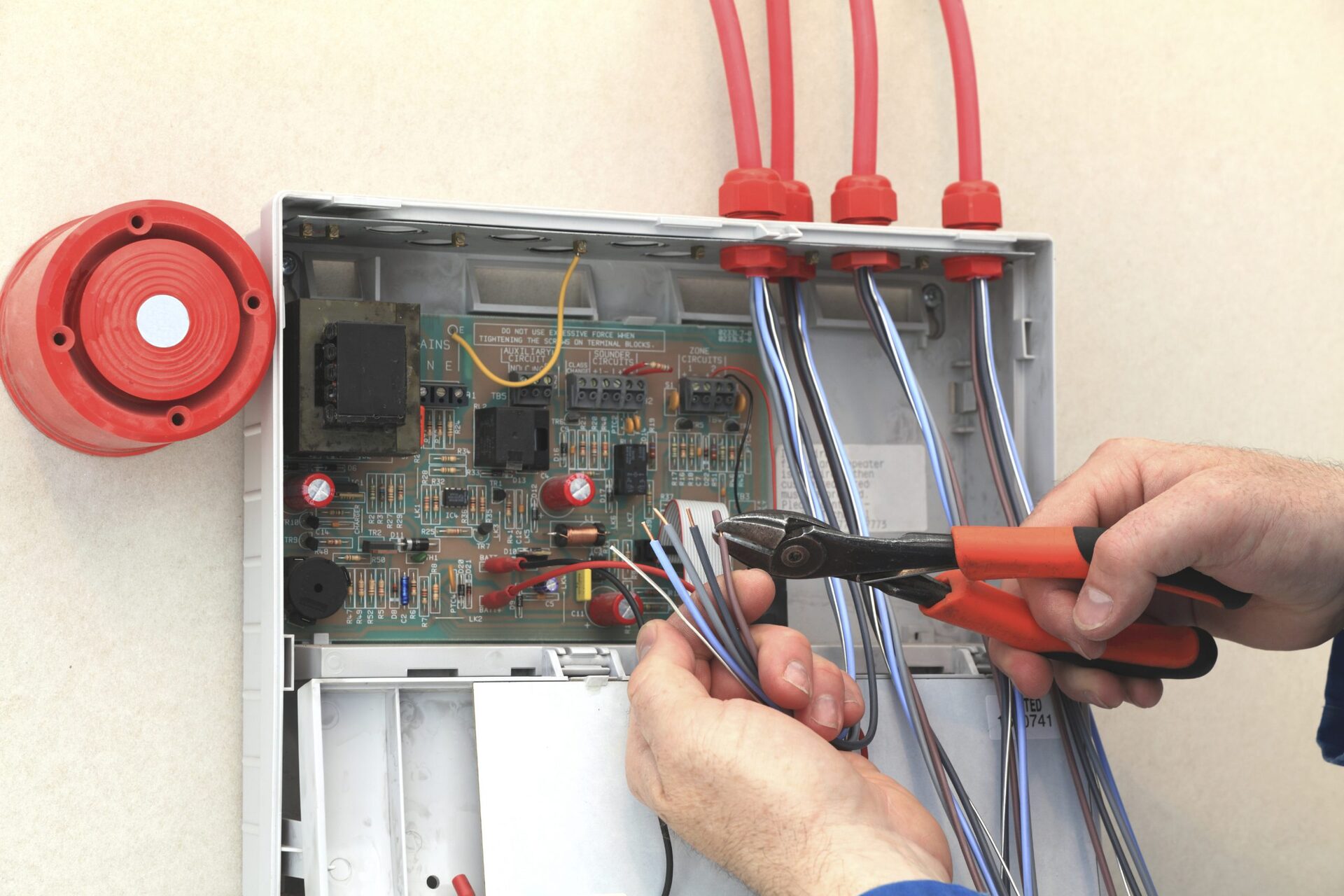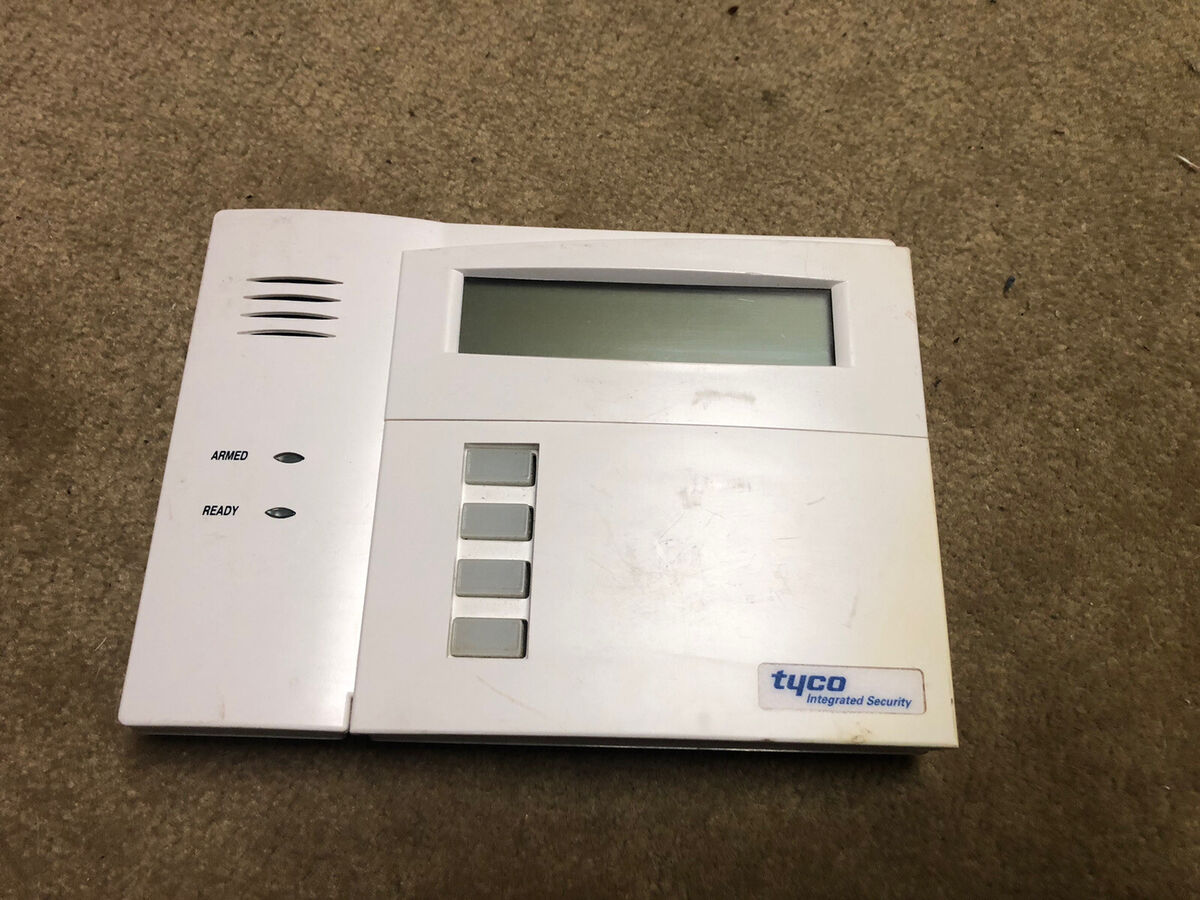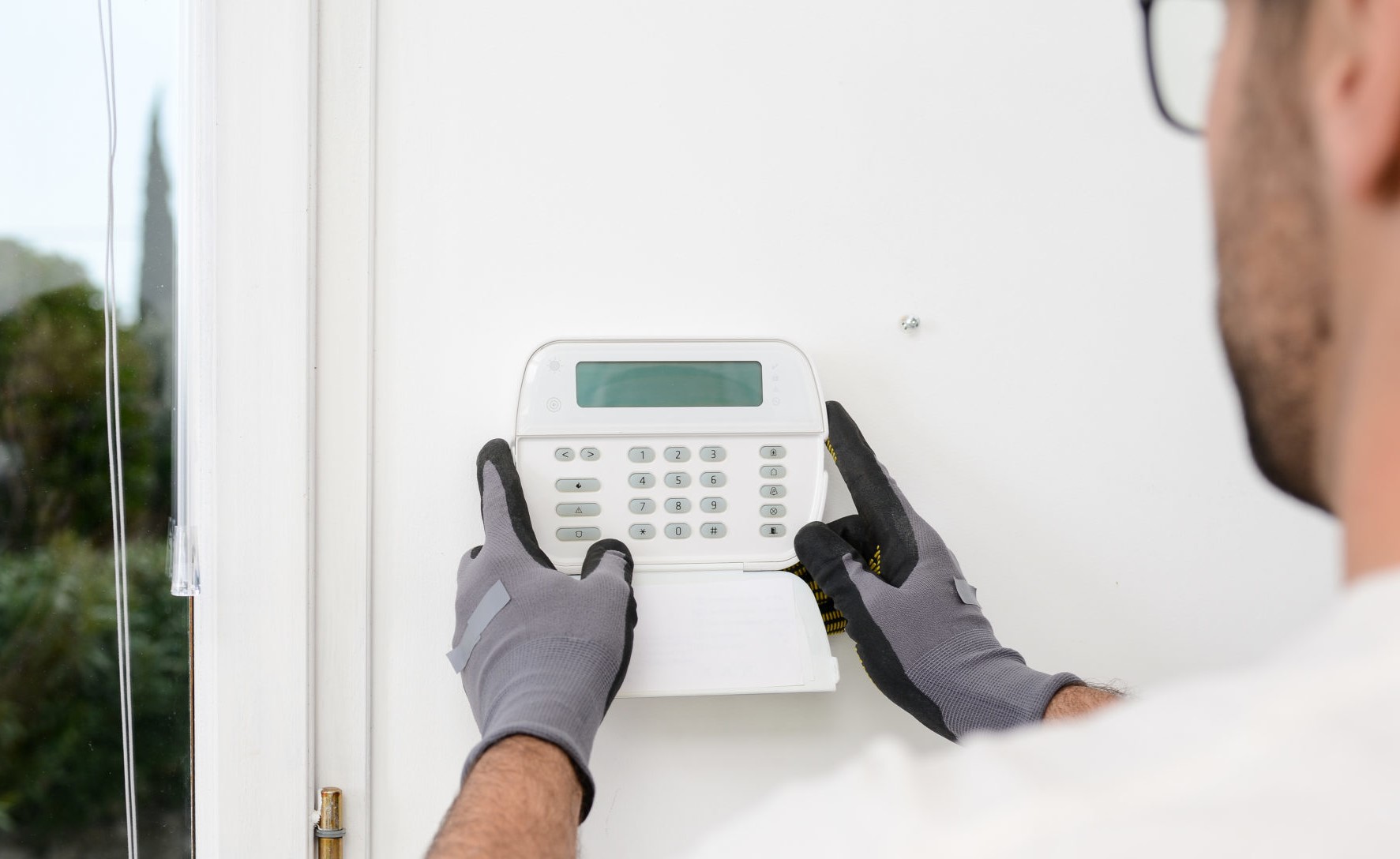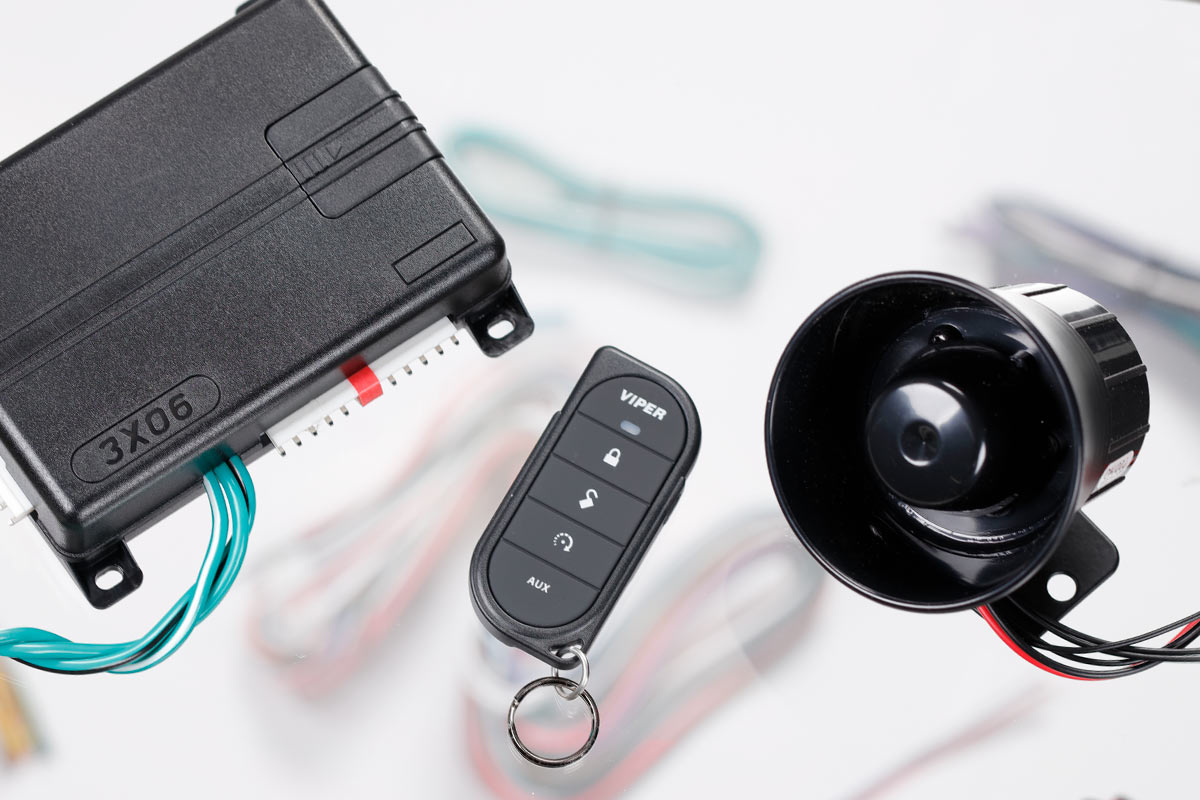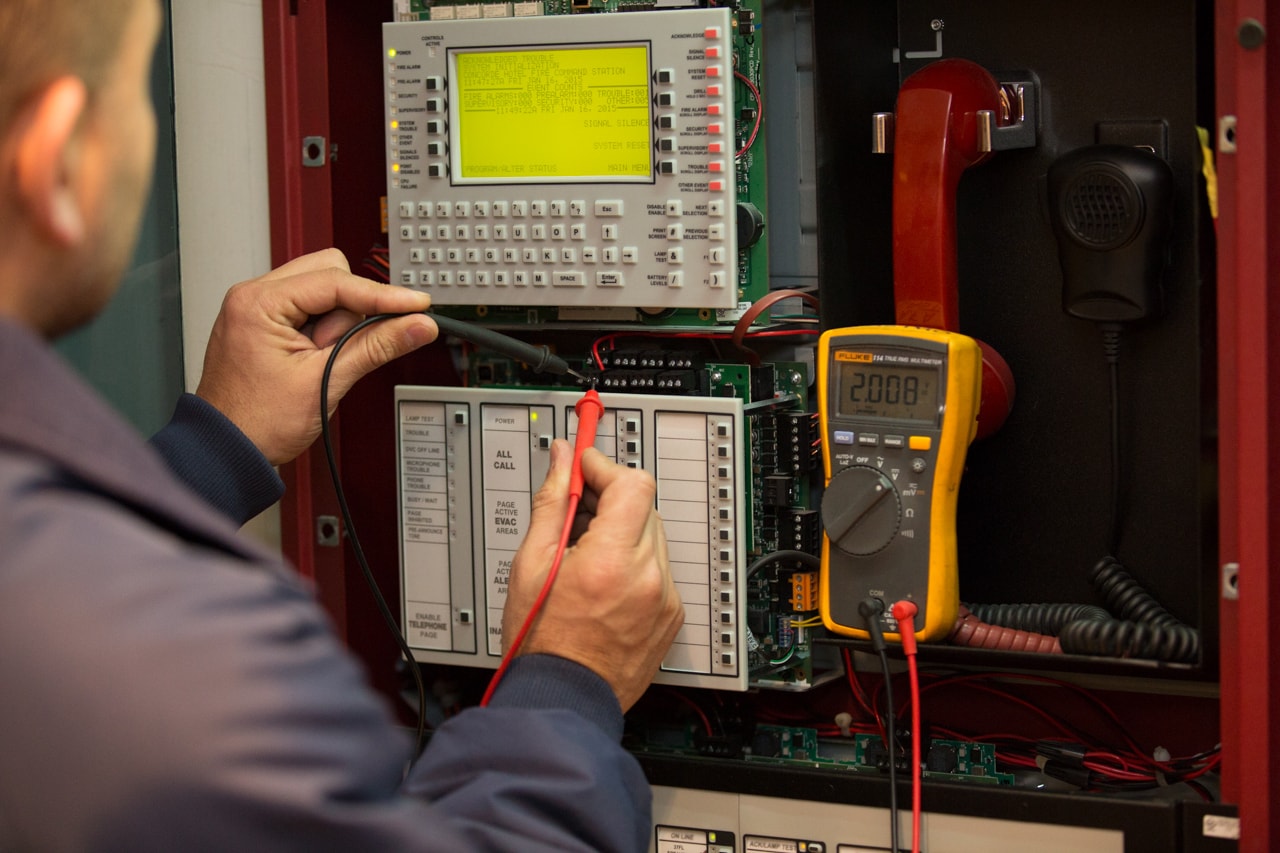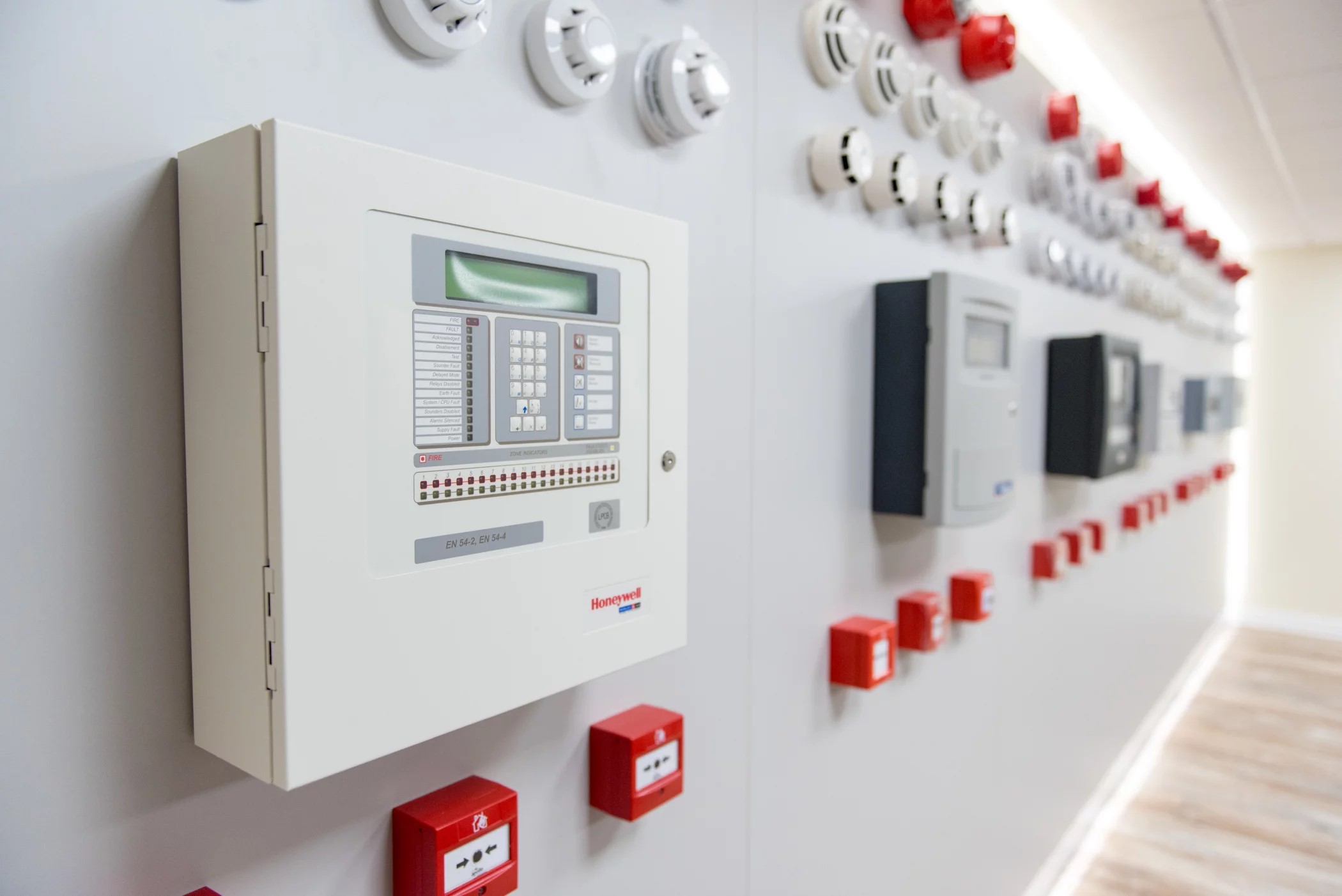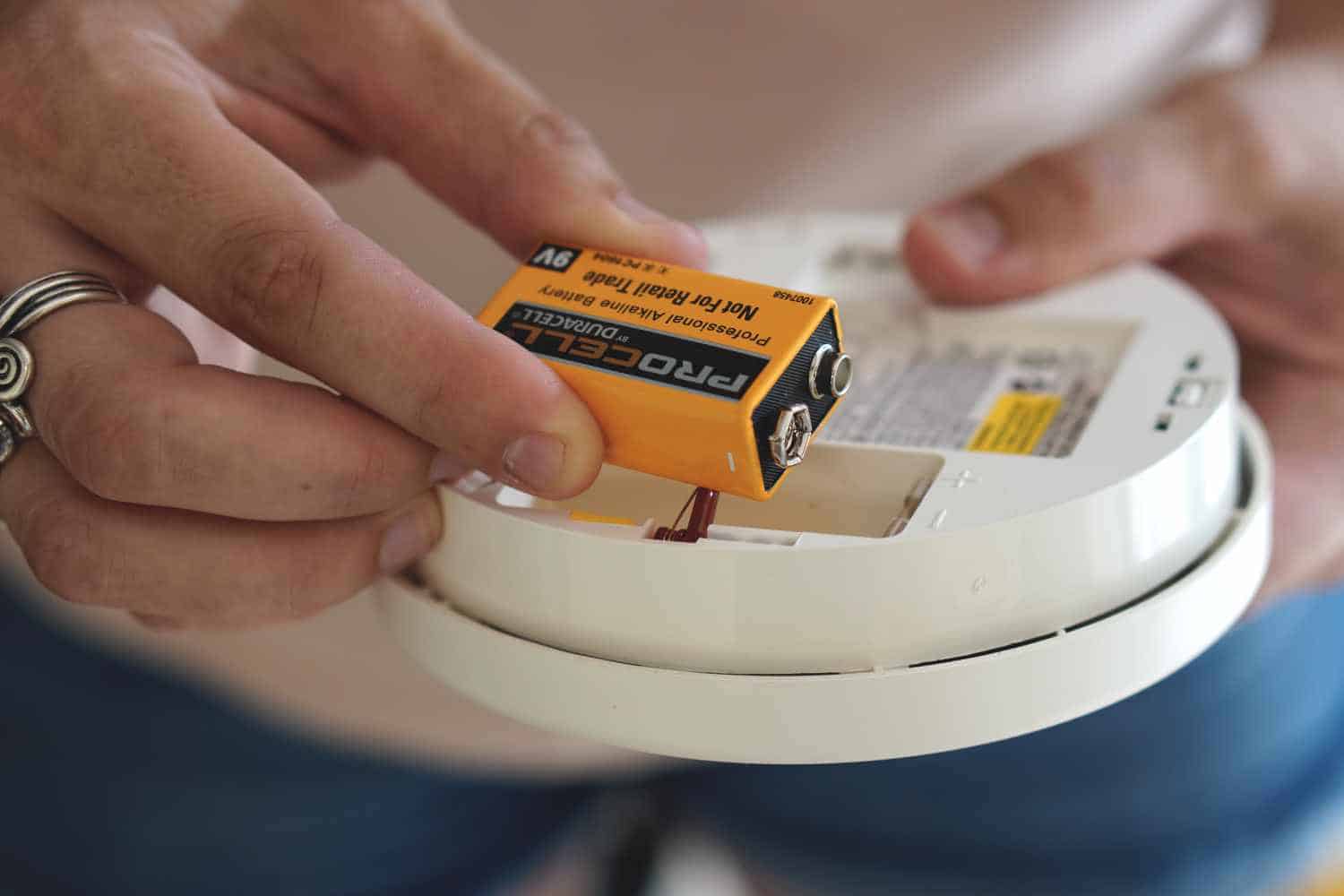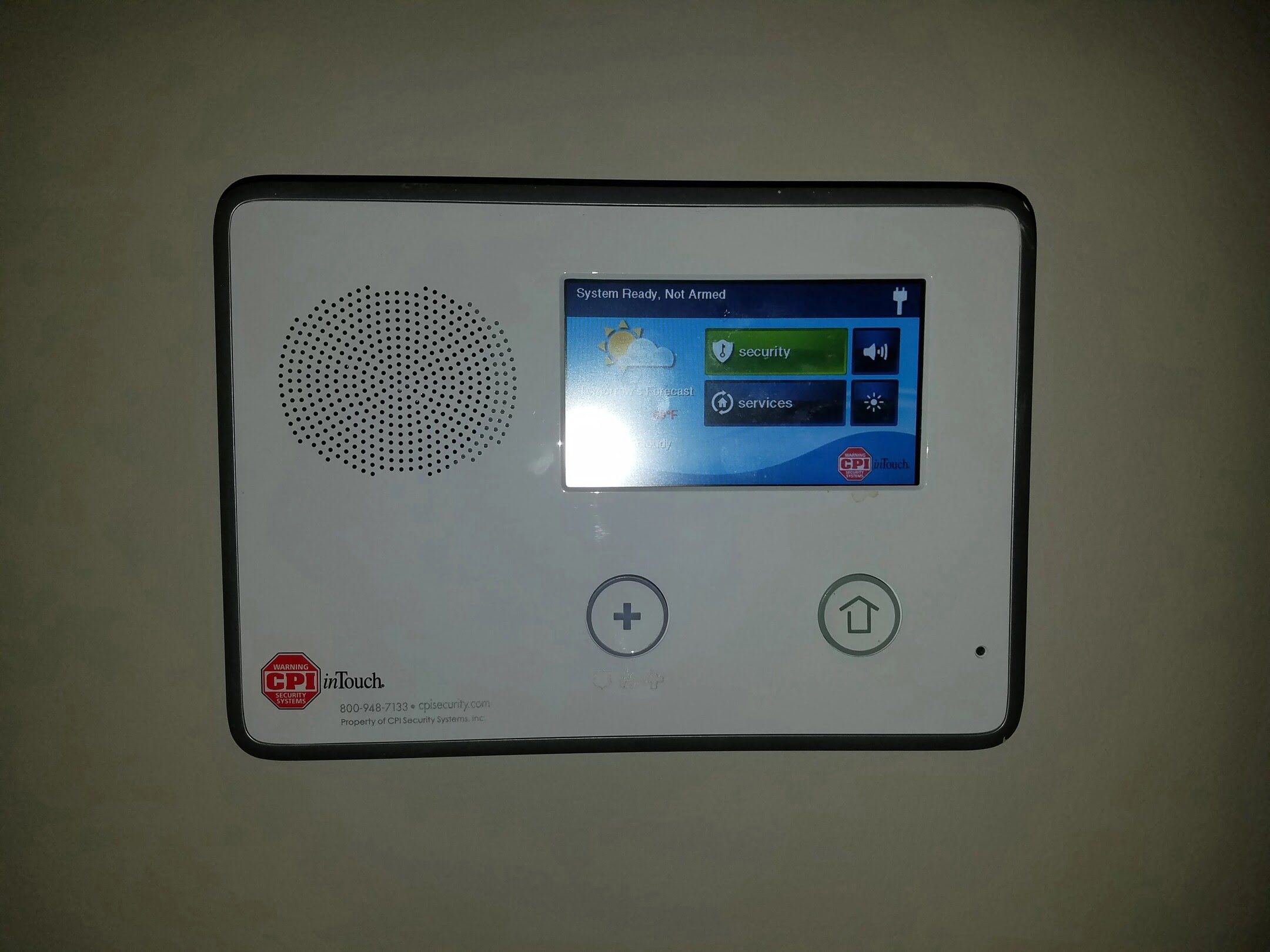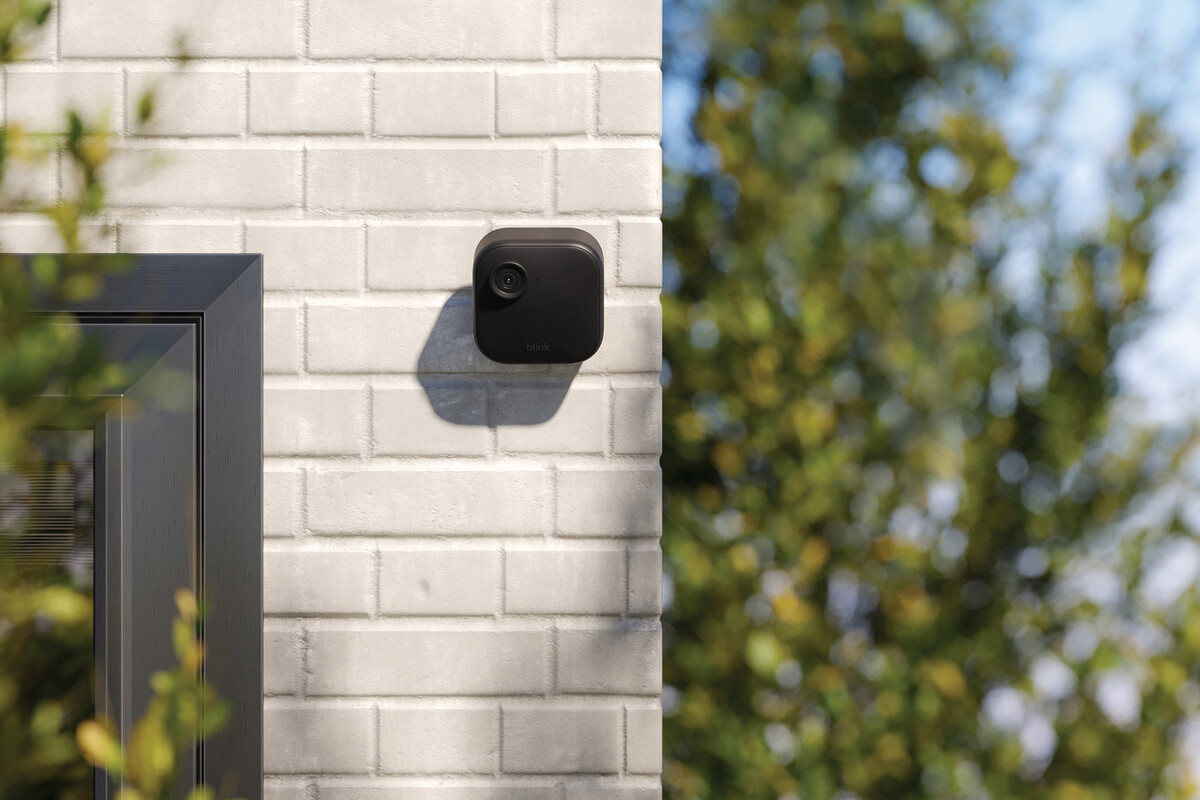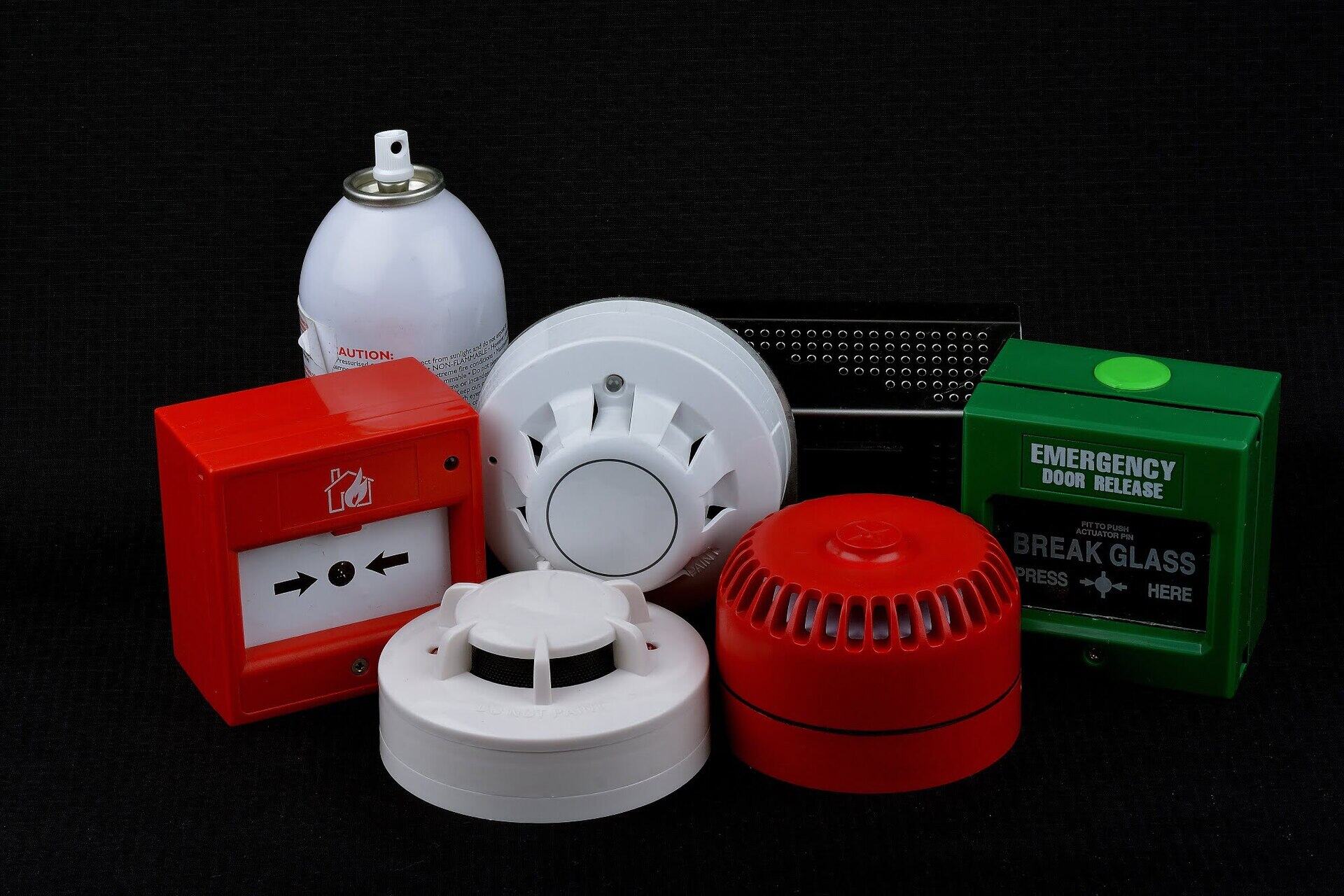Home>Home Security and Surveillance>What Kind Of Batteries Do Home Alarm Systems Use
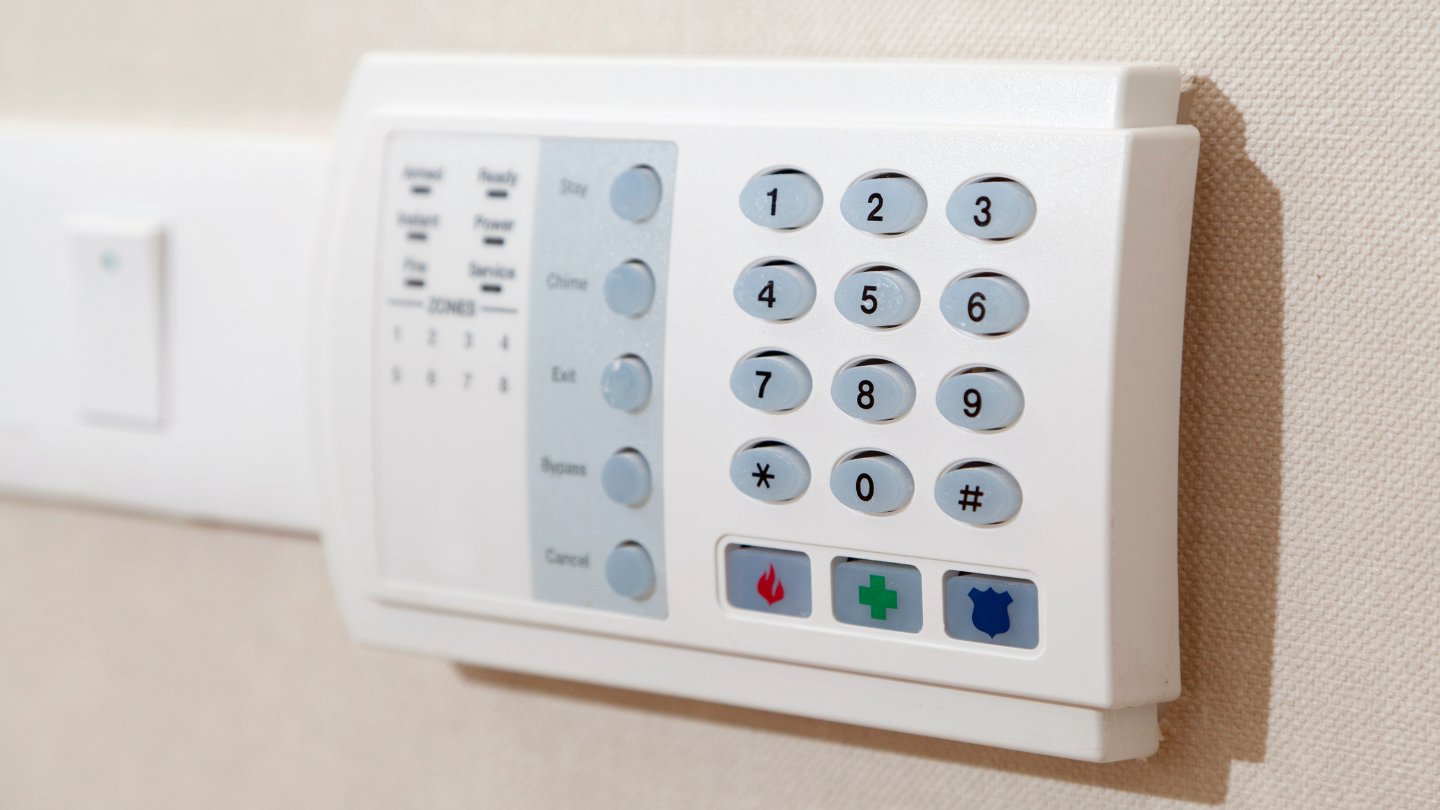

Home Security and Surveillance
What Kind Of Batteries Do Home Alarm Systems Use
Modified: March 7, 2024
Find out what kind of batteries home alarm systems use for optimal home security and surveillance.
(Many of the links in this article redirect to a specific reviewed product. Your purchase of these products through affiliate links helps to generate commission for Storables.com, at no extra cost. Learn more)
Introduction
Home security is a top priority for many homeowners, and one crucial aspect of ensuring the safety of your property is having a reliable alarm system in place. While these systems are designed to protect your home from intruders, they are only as strong as their weakest link. One critical component of home alarm systems is the batteries that power them.
Home alarm systems rely on batteries to provide continuous power, particularly in the event of a power outage or tampering with the electrical supply. These batteries act as a backup power source, ensuring that your alarm system remains operational and can alert you and authorities in case of an emergency.
In this article, we will explore the types of batteries commonly used in home alarm systems and discuss the factors to consider when choosing the right batteries for your security needs. Additionally, we will provide essential tips for maintaining and replacing batteries to ensure the optimal performance of your home alarm system.
Key Takeaways:
- Choose lithium batteries for longer lifespan and consistent power output in your home alarm system. Regular testing and monitoring ensure optimal performance and uninterrupted security coverage.
- Properly store and replace batteries based on manufacturer recommendations to maintain the reliability of your home alarm system. Consider environmental impact and recycle used batteries for a sustainable approach to home security.
Read more: What Kind Of Tape Is Used For Alarm Systems
Types of Batteries Used in Home Alarm Systems
When it comes to home alarm systems, there are several types of batteries that are commonly used to power these essential security devices. Let’s take a closer look at each type:
- Alkaline Batteries: Alkaline batteries are a popular choice for home alarm systems due to their affordability and wide availability. These batteries are known for their long shelf life and ability to provide consistent power output. Alkaline batteries come in various sizes, such as AA, AAA, C, and D, making them compatible with different alarm system models.
- Lithium Batteries: Lithium batteries have gained popularity in recent years due to their superior performance and extended battery life. These batteries offer a higher energy density, allowing them to last longer and provide consistent power output. Lithium batteries are more expensive than alkaline batteries but are often worth the investment, especially for homeowners who prioritize long-term reliability.
- Nickel-Metal Hydride (NiMH) Batteries: NiMH batteries are another option for powering home alarm systems. These rechargeable batteries are known for their environmentally friendly nature and ability to deliver consistent power output. They have a lower self-discharge rate compared to other rechargeable batteries, ensuring they remain ready for use when needed. However, it’s important to note that NiMH batteries may have a shorter overall lifespan compared to alkaline or lithium batteries.
When selecting batteries for your home alarm system, it’s essential to check the manufacturer’s specifications to ensure compatibility and optimal performance. Some alarm systems may require specific battery types or sizes, so it’s essential to follow these guidelines to avoid any issues or malfunctions.
Next, let’s explore some key factors to consider when choosing batteries for your home alarm system.
Alkaline Batteries
Alkaline batteries are a widely used and readily available option for powering home alarm systems. They are known for their affordability, long shelf life, and consistent power output. Here are some key features and considerations when it comes to alkaline batteries for your home security needs:
- Longevity: Alkaline batteries have a relatively long lifespan, making them suitable for powering alarm systems. They can provide continuous power for extended periods, ensuring your alarm system remains operational even during power outages.
- Compatibility: Alkaline batteries come in various sizes, such as AA, AAA, C, and D, making them compatible with most home alarm system models. Before purchasing alkaline batteries, check the specifications of your alarm system to ensure the correct battery size and type.
- Availability: Alkaline batteries are widely available in stores and online, making them easy to replace when needed. It’s recommended to have spare batteries on hand so that you can quickly replace them in case of a battery failure.
- Cost-Effectiveness: Alkaline batteries are generally more affordable compared to other battery types, making them a cost-effective choice for homeowners. However, it’s important to balance cost with performance and consider the specific power requirements of your alarm system.
While alkaline batteries have many benefits, there are a few considerations to keep in mind. One is their limited rechargeability; alkaline batteries are typically not designed for recharging, meaning they must be replaced once they are depleted. Additionally, extreme temperatures can affect the performance of alkaline batteries, so it’s crucial to store them in a cool, dry place away from direct sunlight or excessive heat.
If you opt for alkaline batteries for your home alarm system, it’s recommended to periodically test the batteries to ensure they are still functioning correctly and have enough power. Regular testing will help you identify any potential issues and allow you to replace the batteries promptly if needed.
Now that we have explored alkaline batteries, let’s move on to discussing another commonly used battery type: lithium batteries.
Lithium Batteries
Lithium batteries are becoming increasingly popular for powering home alarm systems due to their superior performance and extended battery life. These batteries offer unique features and benefits that make them an attractive choice for homeowners seeking reliable power supply for their security systems. Here is a closer look at lithium batteries:
- Extended Battery Life: One of the key advantages of lithium batteries is their exceptional longevity. They have a significantly longer lifespan compared to alkaline batteries, providing reliable power for an extended period. This reliability ensures that your home alarm system will remain functional and effective, even during long power outages.
- Consistent Power Output: Lithium batteries deliver consistent power output throughout their lifespan. This ensures that your home alarm system operates at optimal performance, allowing it to effectively detect and alert you to any potential security breaches.
- Wide Temperature Range: Lithium batteries are known for their ability to perform in extreme temperatures. They can withstand both freezing cold and scorching hot environments without compromising their performance, making them suitable for various climates and home alarm system installations.
- Compact Design: Lithium batteries have a compact and lightweight design, which makes them easy to install and integrate into your home alarm system. Their small size also means they take up less space, allowing for a more streamlined and efficient setup.
- Higher Initial Cost: While lithium batteries offer many benefits, they typically come with a higher initial cost compared to other battery types. However, it’s important to consider the long-term value and extended lifespan of lithium batteries, which can outweigh the initial investment.
When choosing lithium batteries for your home alarm system, it’s essential to ensure compatibility with your specific alarm system model. Check the manufacturer’s specifications or consult with a professional to ensure the correct battery size and type.
It’s worth noting that lithium batteries are not designed for recharging. If you choose lithium batteries for your home alarm system, they will need to be replaced once they are depleted. However, their long-lasting performance means that replacements may be less frequent compared to other battery types.
Now that we have explored the features and benefits of lithium batteries, let’s move on to the next type: nickel-metal hydride (NiMH) batteries.
Nickel-Metal Hydride (NiMH) Batteries
Nickel-Metal Hydride (NiMH) batteries are another type of rechargeable battery commonly used in home alarm systems. These batteries offer unique advantages and considerations that make them a viable option for powering your security system. Let’s delve deeper into the features and considerations of NiMH batteries:
- Rechargeable: One of the primary advantages of NiMH batteries is their rechargeability. They can be reused multiple times, reducing the need for frequent battery replacements. This can be both cost-effective and environmentally friendly.
- Consistent Power Output: NiMH batteries deliver a stable and consistent power output throughout their charge, ensuring your home alarm system functions reliably. This allows for seamless detection and timely notification of any potential security breaches.
- Environmentally Friendly: NiMH batteries are considered more environmentally friendly than disposable batteries. They contain fewer toxic materials and can be recycled, reducing the environmental impact of battery disposal.
- Self-Discharge Rate: One factor to consider with NiMH batteries is their self-discharge rate. Compared to lithium and alkaline batteries, NiMH batteries tend to self-discharge at a faster rate. This means they may lose their charge over time, even when not in use. Regular testing and recharging can help mitigate this issue.
- Maintenance: NiMH batteries require proper maintenance to ensure their longevity and performance. This includes avoiding overcharging or deep discharging, as it can shorten the battery’s lifespan. Following the manufacturer’s guidelines on charging and usage is important for optimal performance.
Before choosing NiMH batteries for your home alarm system, ensure that they are compatible with your specific alarm system model. Check the manufacturer’s specifications or consult with a professional to confirm the correct battery size and type.
While NiMH batteries offer the advantage of reusability, it’s important to note that their overall lifespan may be shorter compared to alkaline or lithium batteries. Regular monitoring and testing can help you identify when it’s time for a battery replacement to ensure optimal performance.
Now that we have explored the features and considerations of NiMH batteries, let’s move on to discussing the factors to consider when choosing batteries for your home alarm system.
Read more: What Alarm Systems Use Alexa
Factors to Consider When Choosing Batteries for Home Alarm Systems
When selecting batteries for your home alarm system, there are several important factors to consider. By taking these factors into account, you can ensure that you choose the right batteries for your specific security needs. Here are the key considerations:
- Battery Life: The battery life is a crucial factor to consider, as it determines how long your home alarm system will remain operational during a power outage. Look for batteries with a long lifespan that can provide continuous power for an extended period.
- Cost: Consider the cost of the batteries, as it can vary depending on the type and brand. While it may be tempting to choose the cheapest option, keep in mind that investing in higher-quality batteries can provide longer-lasting power and potentially save you money in the long run.
- Power Requirements: Ensure that the batteries you choose meet the power requirements of your home alarm system. Check the manufacturer’s specifications or consult with a professional to determine the correct battery type, size, and voltage needed for optimal performance.
- Environmental Impact: Consider the environmental impact of the batteries you select. Look for options that are rechargeable or have minimal toxic materials. Choosing batteries that can be recycled contributes to a greener approach to home security.
By considering these factors, you can make an informed decision and choose batteries that align with your security requirements and personal values.
Now that we have covered the factors to consider when choosing batteries, let’s explore maintenance and replacement tips for your home alarm system batteries.
Battery Life
Battery life is a crucial consideration when choosing batteries for your home alarm system. The length of time that the batteries can power your alarm system during a power outage or in the event of tampering is essential for maintaining continuous security coverage. Here are some key factors to consider regarding battery life:
- Battery Type: Different battery types have varying capacities and lifespans. Lithium batteries, for example, are known for their extended battery life compared to alkaline or NiMH batteries. Consider the specific needs of your home alarm system and prioritize batteries that offer a longer shelf life.
- Usage: The frequency and intensity of usage can impact the battery life. If your home alarm system experiences frequent triggers or is constantly in use, it may require batteries with a higher capacity or quicker recharging capabilities. Consult the manufacturer’s guidelines to determine the appropriate battery type for your usage requirements.
- Power Consumption: The efficiency and power consumption of your home alarm system can affect battery life. Some systems may consume more power than others, especially if they utilize multiple sensors, cameras, or wireless connectivity. It’s important to ensure that the batteries you choose can adequately handle the power demands of your specific alarm system.
- Monitoring and Testing: Regular monitoring and testing of your home alarm system can help identify any battery-related issues. Periodically check the battery levels and performance to ensure that they are still providing adequate power. Replace any batteries that show signs of deterioration or low power to maintain optimal functionality.
It’s important to remember that battery life can also be affected by external factors such as temperature. Extreme cold or heat can impact the performance and lifespan of the batteries. Store your batteries in a cool, dry place away from direct sunlight or excessive heat to help maintain their effectiveness.
By considering battery life as a key factor when choosing batteries for your home alarm system and actively monitoring and testing their performance, you can ensure that your system remains operational and provides reliable security coverage.
Next, let’s explore another important factor to consider when choosing batteries for your home alarm system: cost.
Cost
Cost is an important factor to consider when choosing batteries for your home alarm system. While it can be tempting to opt for the cheapest option, it’s crucial to strike a balance between affordability and quality. Here are some key points to consider regarding the cost of batteries:
- Battery Type: Different battery types come with varying price points. Alkaline batteries are generally more affordable compared to lithium or NiMH batteries. Consider your budget and the specific power requirements of your home alarm system to determine the best balance between cost and performance.
- Battery Lifespan: It’s important to consider the lifespan of the batteries when assessing the cost. Although lithium batteries may have a higher initial price tag, they often last longer and provide more reliable power. In the long run, investing in higher-quality batteries with a longer lifespan can potentially save you money by reducing the frequency of replacements.
- Battery Quantity: Assess how many batteries your home alarm system requires and calculate the overall cost. Some alarm systems may require multiple batteries to ensure continuous power supply. Determine the optimal number of batteries needed and factor in the cost when making your decision.
- Brand and Quality: Different brands may offer batteries with varying quality and performance. While a generic or lesser-known brand may be more affordable, it’s essential to consider the reliability and reputation of the brand. Opting for reputable brands known for their quality can provide peace of mind and ensure the batteries deliver the promised performance.
While cost is an important consideration, it’s crucial not to sacrifice quality and reliability for the sake of saving a few dollars. The batteries in your home alarm system play a critical role in maintaining the security of your property, and choosing subpar batteries can jeopardize the effectiveness of the system.
It’s worth considering the long-term value of the batteries instead of just focusing on the upfront cost. Investing in higher-quality batteries may result in fewer replacements and better overall performance, ultimately saving you money in the long run.
By considering the cost of batteries alongside their performance and longevity, you can make an informed decision that aligns with your budget and security needs.
Next, let’s explore the factor of power requirements when choosing batteries for your home alarm system.
Home alarm systems typically use 12-volt sealed lead-acid batteries, also known as SLA batteries. It’s important to regularly check and replace these batteries to ensure your alarm system functions properly.
Power Requirements
When choosing batteries for your home alarm system, it’s crucial to consider the specific power requirements of your system. Different alarm systems may have varying power needs, and selecting the right batteries to meet those requirements is essential for optimal performance. Here are some key points to consider regarding power requirements:
- Battery Type and Voltage: Consult the manufacturer’s specifications or guidelines to determine the correct battery type and voltage required for your home alarm system. Different systems may have specific compatibility requirements to ensure proper functionality. Using the wrong battery type or voltage can lead to irregular power supply or even damage to the system.
- Battery Capacity: The capacity of the battery refers to its ability to store and deliver power. Take into account the power consumption of your home alarm system, including any sensors, cameras, or wireless components. Choose batteries with sufficient capacity to meet the power demands of your specific system.
- Backup Power: Consider whether your home alarm system requires backup power in case of an electrical outage. Some systems may have additional backup batteries or a separate power source for uninterrupted functioning. Assess the power requirements for both regular operation and backup scenarios to ensure continuous security coverage.
- Compatibility: Ensure that any batteries you choose are compatible with your home alarm system’s power input and charging capabilities. Some systems may have specific charging requirements or may not be designed to recharge certain battery types. Verify compatibility to avoid any compatibility issues or potential damage to the system.
Taking the time to understand the power requirements of your home alarm system and selecting batteries that meet those requirements will help ensure reliable and uninterrupted operation. It’s always best to refer to the manufacturer’s guidelines or consult with a professional if you have any doubts or questions regarding the power requirements and battery compatibility of your system.
Now that we have covered power requirements, let’s explore the factor of environmental impact when choosing batteries for your home alarm system.
Environmental Impact
Considering the environmental impact of the batteries used in your home alarm system is becoming increasingly important. By choosing batteries with a lower environmental impact, you can contribute to a greener and more sustainable approach to home security. Here are some key considerations regarding the environmental impact of batteries:
- Rechargeable Batteries: Opting for rechargeable batteries, such as NiMH or lithium-ion batteries, can significantly reduce battery waste. Rechargeable batteries can be reused multiple times, reducing the need for frequent disposal and replacement of single-use batteries.
- Recyclability: Check if the batteries you choose are recyclable. Many battery manufacturers provide recycling programs or guidelines for proper disposal of their batteries. By recycling batteries instead of throwing them in the trash, you can ensure they are disposed of responsibly and reduce the environmental impact.
- Chemical Composition: Consider the chemical composition of the batteries. Some batteries contain toxic materials such as lead, cadmium, or mercury that can harm the environment if not disposed of correctly. Look for batteries with minimal or no toxic components to lessen their environmental footprint.
- Energy Efficiency: Assess the energy efficiency of your home alarm system as a whole. A more energy-efficient system can help reduce the overall power consumption and the corresponding number of batteries needed. Optimize the settings and practices of your alarm system to ensure it operates in the most energy-efficient manner.
- Manufacturer’s Environmental Commitment: Research and consider the environmental practices and commitments of battery manufacturers. Look for companies that prioritize sustainability, responsible production, and recycling initiatives. Choosing batteries from environmentally conscious manufacturers supports their efforts towards a greener future.
By selecting batteries with a lower environmental impact, recycling used batteries, and adopting energy-efficient practices, you can reduce your carbon footprint and contribute to a more sustainable home security system.
It’s important to note that while some batteries may have a lower environmental impact, they may have other trade-offs, such as higher initial cost or shorter lifespan. Consider the overall balance between environmental impact, performance, and cost when choosing batteries for your home alarm system.
Now that we have explored the factors to consider when choosing batteries for your home alarm system, let’s move on to discussing the maintenance and replacement of these batteries.
Maintenance and Replacement of Batteries in Home Alarm Systems
Maintaining and regularly replacing the batteries in your home alarm system is crucial to ensure its optimal performance and reliability. Here are some essential tips for the maintenance and replacement of batteries:
- Regular Testing and Monitoring: Periodically test the batteries in your home alarm system to determine their charge level and functionality. Most alarm systems have a built-in battery monitor or indicator that alerts you when the battery needs to be replaced. Regularly checking and monitoring battery levels will help you identify any potential issues and maintain continuous power supply.
- Proper Battery Storage: Proper storage is important to extend the lifespan of your batteries. Store unused batteries in a cool, dry place to prevent exposure to extreme temperatures, which can affect their performance. Avoid storing batteries near direct sunlight or in high humidity areas, as these conditions can degrade battery quality.
- Replacement Schedule: It’s important to establish a regular replacement schedule for the batteries in your home alarm system. The specific timeframe for replacement will depend on factors such as battery type, usage, and manufacturer’s recommendations. Follow the guidelines provided by the battery manufacturer or consult with a professional to determine the appropriate replacement schedule for your system.
- Battery Testing and Voltage Check: Prior to installing new batteries, test them and check their voltage to ensure they are fully charged and ready for use. This step helps prevent any potential issues caused by faulty or discharged batteries. Remember to follow the manufacturer’s guidelines and safety precautions when handling and installing batteries.
- Battery Recycling: Dispose of used batteries responsibly by recycling them. Many retailers and recycling centers offer battery recycling programs to ensure proper disposal and minimize environmental impact. Be sure to follow local regulations and guidelines for battery recycling in your area.
By regularly testing and monitoring your batteries, storing them properly, following a replacement schedule, and recycling used batteries, you can maintain the effectiveness of your home alarm system and minimize any potential disruptions to your security coverage.
It’s important to note that different home alarm systems may have specific guidelines or requirements regarding battery maintenance and replacement. Consult the manufacturer’s guidelines or seek advice from a professional if you have any questions or need further assistance with maintaining and replacing the batteries in your specific home alarm system.
With proper maintenance and timely battery replacements, you can ensure that your home alarm system remains reliable and provides the necessary security for your home and loved ones.
Now, let’s summarize the key points covered in this article.
Regular Testing and Monitoring
Regular testing and monitoring of the batteries in your home alarm system are essential to ensure their reliability and the overall effectiveness of your security measures. Here are some key points to consider when it comes to testing and monitoring your home alarm system’s batteries:
- Scheduled Testing: Establish a routine testing schedule to check the battery levels and functionality of your home alarm system. This can be done weekly, monthly, or as recommended by the manufacturer. Regular testing helps identify any battery issues early on and ensures that they are functioning properly.
- Battery Status Indicators: Most home alarm systems have built-in battery status indicators that display the current battery level. Monitor these indicators and take note of any significant decline or warning signs. These indicators serve as an early warning system, alerting you to potential battery issues that may require replacement.
- Alarm System Testing: In addition to checking the battery status, it’s important to regularly test the overall functionality of your home alarm system. This includes triggering the sensors, testing the connection to the monitoring center, and ensuring that the system is armed and disarmed correctly. A comprehensive system test will help identify any underlying issues that may affect the battery performance or the security of your home.
- Battery Voltage Check: When testing the batteries, consider performing a voltage check using a multimeter or a battery tester. This provides a more accurate measurement of the battery’s actual charge level and can help determine if the batteries need replacement or recharging.
- Record Keeping: Maintain a record of the battery testing results. This allows you to track the performance of the batteries over time and identify any patterns or inconsistencies. By keeping a log of battery tests, you can establish a reliable baseline and detect any deviations or deterioration in battery performance.
Regular testing and monitoring of your home alarm system’s batteries are essential for maintaining the integrity of your security measures. By staying proactive and addressing any battery concerns promptly, you can ensure that your system remains operational and capable of providing reliable protection for your home and loved ones.
Now that we have covered the importance of regular testing and monitoring, let’s move on to explore proper battery storage.
Proper Battery Storage
Proper battery storage is vital to maintain the quality and performance of the batteries in your home alarm system. Storing batteries correctly helps prevent degradation, extends their lifespan, and ensures they are ready when you need them. Here are some key points to consider regarding proper battery storage:
- Cool and Dry Environment: Store your batteries in a cool and dry environment. Excessive heat can cause batteries to deteriorate more quickly, while excessive moisture can lead to corrosion. Aim for a storage area with a temperature range between 60°F and 80°F (15°C – 27°C).
- Avoid Extreme Temperatures: Avoid exposing batteries to extreme temperatures, both hot and cold. Extreme heat can cause batteries to leak or lose their charge, while extreme cold can affect their performance. Keep batteries away from direct sunlight, heaters, radiators, and freezing temperatures.
- Separate Storage Containers: Use separate storage containers or compartments for different battery sizes and types. This helps prevent contact between the battery terminals, reducing the risk of short-circuiting or discharge when stored together. Many battery organizers or cases are available to keep batteries organized and protected.
- Remove Stored Batteries from Devices: If you’re storing devices with built-in batteries, such as wireless keypads or sensors, remove the batteries before storing the devices. This prevents potential battery leakage and damage to the device during long periods of storage.
- Keep Original Packaging: If possible, keep the original packaging of your batteries. The packaging provides an extra layer of protection against moisture and ensures that the batteries are stored in a safe and secure manner. If the original packaging is not available, consider using battery storage containers or resealable bags to maintain their integrity.
By implementing proper battery storage practices, you can prolong the lifespan and maintain the integrity of your home alarm system’s batteries. Remember to check the battery expiration dates and discard any expired or damaged batteries properly.
Now that we have covered proper battery storage, let’s move on to discussing the importance of a battery replacement schedule for your home alarm system.
Read more: What Kind Of Wire Is Used For Alarm Systems
Replacement Schedule
Establishing a regular battery replacement schedule for your home alarm system is crucial to ensure its uninterrupted functionality and reliability. Over time, batteries can lose their charge capacity or become less effective, potentially compromising the performance of your security system. Here are some key points to consider when setting a battery replacement schedule:
- Manufacturer’s Recommendations: Review the manufacturer’s guidelines and recommendations for battery replacement. Different alarm system models may have specific instructions regarding the ideal replacement timeframe. Following the manufacturer’s recommendations helps ensure that you maintain optimal performance and minimize the risk of unexpected battery failure.
- Battery Lifespan: Pay attention to the expected lifespan of the batteries you are using. Different battery types have varying lifespans, and it’s important to be aware of their limitations. For example, alkaline batteries typically have a shorter lifespan compared to lithium batteries. Determine the approximate lifespan of your chosen batteries and plan replacements accordingly.
- Testing and Monitoring Results: Regularly monitor the battery levels and test their functionality. Keep a record of the testing results to identify any patterns or decline in battery performance over time. If you notice a significant decrease in battery life or inconsistent performance, it may be time to replace the batteries sooner than the scheduled timeframe.
- Consider Usage and Environment: Evaluate the usage and environmental factors that may affect the battery lifespan. Factors such as frequent power outages, extreme temperatures, or high levels of activity in the alarm system may necessitate more frequent battery replacements. Adjust the replacement schedule as needed to ensure that your system has reliable power at all times.
- Proactive Approach: Rather than waiting for battery failure or reduced performance, adopt a proactive approach to battery replacement. By replacing batteries before they reach their maximum lifespan, you can minimize the risk of unexpected power loss and maintain the security coverage of your home.
It’s important to remember that the replacement schedule may vary depending on the specific circumstances of your home alarm system. When in doubt, consult the manufacturer’s guidelines or seek advice from a professional to determine the optimal battery replacement schedule for your system.
By adhering to a regular battery replacement schedule, you can ensure that your home alarm system remains reliably powered and capable of providing the necessary security for your home and loved ones.
Now, let’s conclude the article.
Conclusion
Selecting the right batteries for your home alarm system is crucial for maintaining its effectiveness and ensuring reliable security coverage. Considerations such as battery life, cost, power requirements, and environmental impact all play a part in making an informed decision. Alkaline batteries are a popular and affordable option, while lithium batteries offer extended lifespan and consistent power output. Nickel-Metal Hydride (NiMH) batteries provide rechargeability and environmental friendliness.
It’s essential to regularly test and monitor the batteries to ensure they are functioning optimally. Establishing a battery replacement schedule, based on manufacturer recommendations and battery lifespan, helps prevent unexpected power loss and ensures uninterrupted security coverage. Proper storage of batteries in a cool and dry environment, separate from devices and with the original packaging if possible, helps maintain their quality and performance.
By considering these factors and following maintenance practices, you can ensure that your home alarm system operates at its best. Regular testing, monitoring, and compliance with a battery replacement schedule are key to maintaining the integrity and reliability of your security system. Additionally, being mindful of the environmental impact and properly disposing of used batteries through recycling programs contributes to a more sustainable approach to home security.
Investing in the right batteries and adhering to proper maintenance and replacement practices will provide you with peace of mind, knowing that your home alarm system is fully powered and ready to protect your home and loved ones.
Remember to consult the manufacturer’s guidelines, seek professional advice when needed, and stay proactive in ensuring the optimal performance of your home alarm system batteries. By doing so, you can maximize your security and enjoy the peace of mind that comes with knowing your home is well-protected.
Frequently Asked Questions about What Kind Of Batteries Do Home Alarm Systems Use
Was this page helpful?
At Storables.com, we guarantee accurate and reliable information. Our content, validated by Expert Board Contributors, is crafted following stringent Editorial Policies. We're committed to providing you with well-researched, expert-backed insights for all your informational needs.
